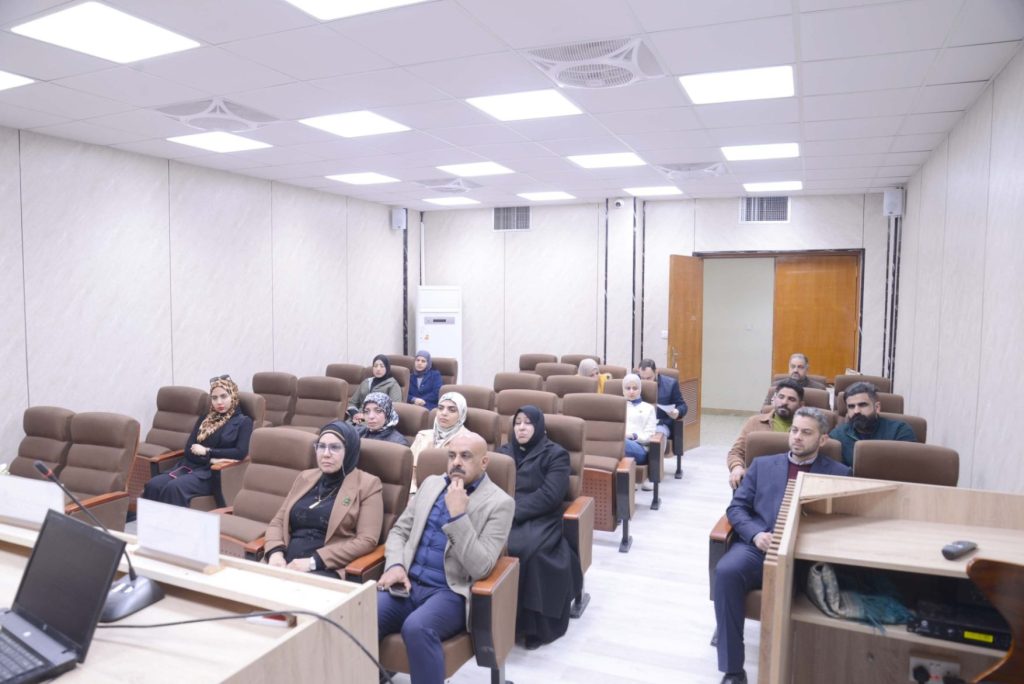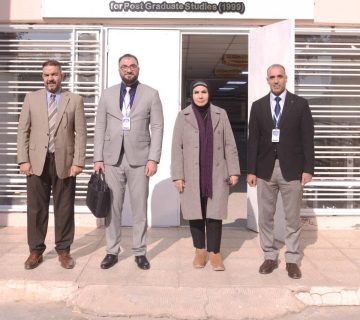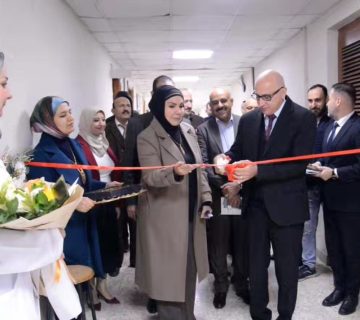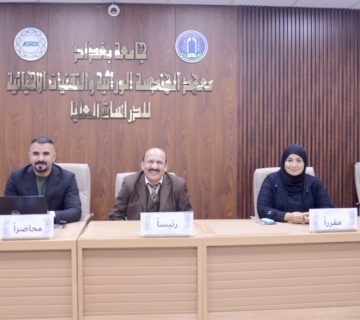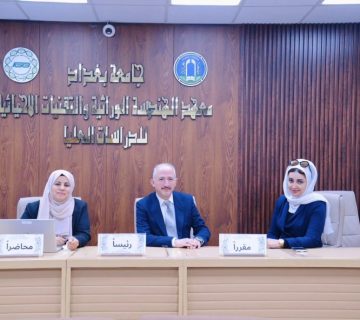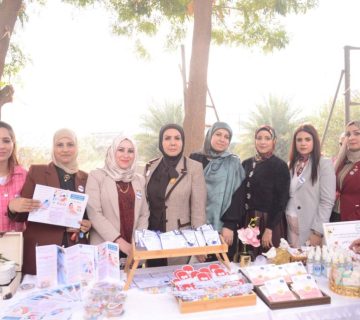The Institute of Genetic Engineering and Biotechnology for Postgraduate Studies at the University of Baghdad held a scientific symposium titled “Challenges of Cell-Based Foods and Predictions for Future Foods.” The symposium was presented by Professor Dr. Mona Turki Al-Moussawi and chaired by Biologist Nagham Hameed from the Central Organization for Standardization and Quality Control, Department of Specifications.
The event was attended by the Dean of the Institute, Professor Dr. Salwa Jabir Al-Awadi, the Assistant Dean for Scientific and Administrative Affairs, Professor Dr. Wathiq Abbas Al-Daraji, as well as faculty members and students of the institute.
The symposium aimed to explore one of the most promising and rapidly developing technologies in food production—cell-based food—examining its production stages, the challenges it faces, and future predictions for its development.
The symposium highlighted that the World Economic Forum has classified cell-based food as one of the top 10 emerging global technologies, recognizing it as a viable solution to the challenges of animal-based food production.
With the rapid advancement of the economy and society, factors such as population growth, climate change, and resource availability pose significant challenges to sustainable food supply and nutritional health in the future. Future foods represent an evolution of both traditional and modern food systems, reflecting changes in production methods and lifestyle patterns.
The symposium emphasized that several challenges still hinder the widespread adoption of cell-based foods, including:
- Technical challenges in production
- High production costs
- Consumer acceptance
- Religious and ethical considerations
- Quality assurance and economic feasibility
- Regulatory support and compliance with food safety standards
Obtaining the necessary approvals and ensuring food safety compliance are critical steps for market entry.
The symposium recommended:
- Organizing more symposiums and lectures in universities and relevant institutions to raise awareness about future foods, including cell-based foods, and to discuss both the positive and negative aspects of their production and consumption.
- Involving regulatory and legislative authorities in assessing the standards, safety, and suitability of these foods for human consumption, especially in the case of importing and introducing them to the Iraqi market.
- Preparing reference and educational laboratories with trained researchers and technicians to evaluate the quality and safety of these foods. Researchers should also work on developing innovative methods to assess potential health risks, if any.


